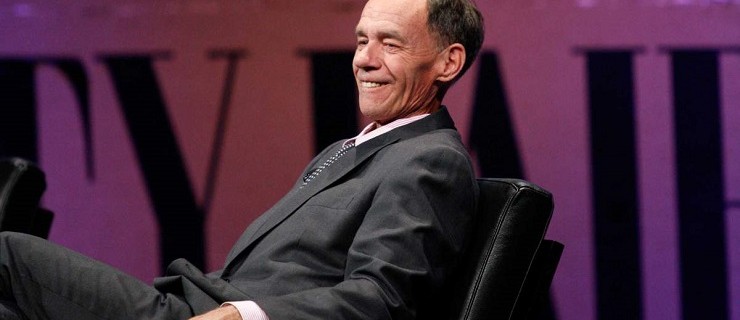The New York Times columnist, who died at age 58, was journalism's finest watchdog and its best advertisement.
I didn't know David Carr well. I'll say that first, because if you are going to write about the operator of journalism's most finely attuned b.s. detector, you'd best dispense with the b.s. up front.
I met Carr, the New York Times media columnist whodied suddenly Thursday at age 58, only a few times professionally. I never worked with him. But I worked with him in my head. If you were on the media beat, you knew that whatever you were doing, Carr would be on it, and his take would be fast, witty, deeply reported and sweepingly analytical. He would pierce the target, and you would hope to lob something within the same ten-block radius. If you covered media in any way, it was malpractice not to keep a small David Carr on retainer somewhere in your consciousness. All the more so if you did anything else in media.
My first encounters with Carr were virtual. When he was editor of the Washington City Paper and I was a wet-eared beginner, he threw a couple kind words my way unnecessarily, the kind of thing that fuels a young writer through long stretches of self-doubt. One of the first things people will mention about Carr is his generosity; as an editor and then at the Times, he helped bring up talents like Ta-Nehisi Coates, Jake Tapper and Brian Stelter. He enjoyed spotting talent (he happened, incidentally, to be the first major journalist to spotlight Lena Dunham in her debut visit to the SXSW film festival). Journalism will remember him not just for his works but for his children.
Later, when Carr took over the Times media beat, he called on me while making his rounds and getting the lay of the media landscape in New York. You do not forget talking to David Carr: his voice sounded like rocks being shaken in a tumbler, and he himself described his weatherbeaten appearance best: “I have a face that looks like it could have been carved out of mashed potatoes.” But there was also the vigor of his questioning, the persistence, curiosity and relish of a guy who loved the taste of news.
The David Carr in my head says I'm starting to romanticize him. Guilty–it was hard to meet him in person or in print and not feel that he was the genuine journalistic article, of whom the rest of us were fifth-generation photocopies. But Carr was his own best de-mythologizer, most notably in his 2008 memoir, The Night of the Gun, in which he reported out his past as a drug addict and concluded, “We all walk this earth feeling we are frauds. The trick is to be grateful and hope the caper doesn't end soon.” When Brian Williams was brought low over his war stories, Carr had a sharp, nuanced, and personally earned take on the nature of memory. “Stories tend to grow over time and, if they are told often enough, they harden into a kind of new truth for the teller.”
Read more: Remembering David Carr, Media Critic and Media Lover






